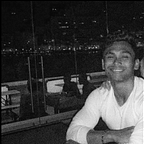How does memory shapes us?
“memory serves to illuminate a greater understanding of past events”
I remember as a kid, my friends and I would spend Saturday afternoons in the wilderness looking for spiders. We would have them as our pet. A race between each other finding these tiny creatures in the vast expanse of fields. The adrenaline, curiosity, and uncertainty filled my childhood with adventure.
Looking back now as a 27 year old trying to be an adult, I find myself missing those times. Whenever I think about it, the pangs of anticipation fills me with joy. The experience is still palpable. It’s one of those moments that I always keep, hidden in a secret closet only I have access into. I desired for a new adventure.
Our lives go by as we experience it like a tiny leaf falling off from a tree. As soon as it hits the ground, it soon becomes a distant memory.
How does memory plays in our daily lives? Is it merely a collection of experiences we save in a box and revisit every time we feel like it? How does memory shapes us?
Many scholars believed that memories shape our identity and these collection of experiences makes us who we are. A Scottish Philosopher Thomas Reid, known for his theory on memory and perception believed that personal identity consists entirely on memory. Sameness of memory is metaphysically necessary and sufficient for the sameness of a person.
“A memory consists in a conception of a past event and a belief about that past event, that happened to the person who is represented in that memory as an agent or witness”
So why is memory important? How does it affect us? A 2004 film by Charlie Kaufman “The Eternal Sunshine of the Spotless Mind”, tackles on the deletion of memories.
The film centres around two characters, a soft spoken and boring Joel Barish and a free spirited Clementine Krucyzynski. It follows the estranged couple in their quest on deleting memories of each other, in hopes to forget the painful past and live a troubled free life.
After a painful break up, Clementine undergoes a procedure to erase all memories she has of Joel. When Joel discovers this, he undergoes the same procedure. As the film progresses, it’s clear that the narrative is taking place in Joel’s head while he is undertaking the deletion process.
Each scene takes us to Joel’s memories with Clementine. He revisits each memories and gets a clear perspective of his self and her. The reason for their break up, his lack of intuitiveness and her lack of stability. While the procedure holds no regard for good and bad memories, Joel realises that he wants to keep the good memories with Clementine because these experiences made his life worth while.
The film then turns into Joel running away from a phantom, mercilessly destroying all his treasured memories of his childhood and Clementine. They race from one memory to another, desperately escaping the inevitable erasing process and clinging to what he has left of her.
The procedure was proven successful. Joel no longer has any memory of Clementine. He starts his mundane life, again, as if she never existed. However, the two met each other, again, and started another relationship that is doomed to fail.
Ignorance isn’t entirely bliss. This shows the importance of memory is to avoid historical repetition of past mistakes.
“Without knowledge of the past, people are doomed to repeat it as unthinking automatons” — Martin Jones
So how we do use our memory? Even the most traumatic ones? In his book Gli abusi della memoria, Tzvetan Todorov suggests ways on how we can use memories and protect ourselves from mistakes and abuse. We should use our memories as models to understand new situations with different agents. This acts as an example that we can extract a lesson from so that the past becomes a principle of action for the present.
What memory does is it provides us with information of our past experience and gives a clearer understanding of events. When we recall a certain memory, we merely act as an observer. We evaluate scenes or situations and learn from it. This will equip us with better comprehension on how the world works and how we fit into that world.
